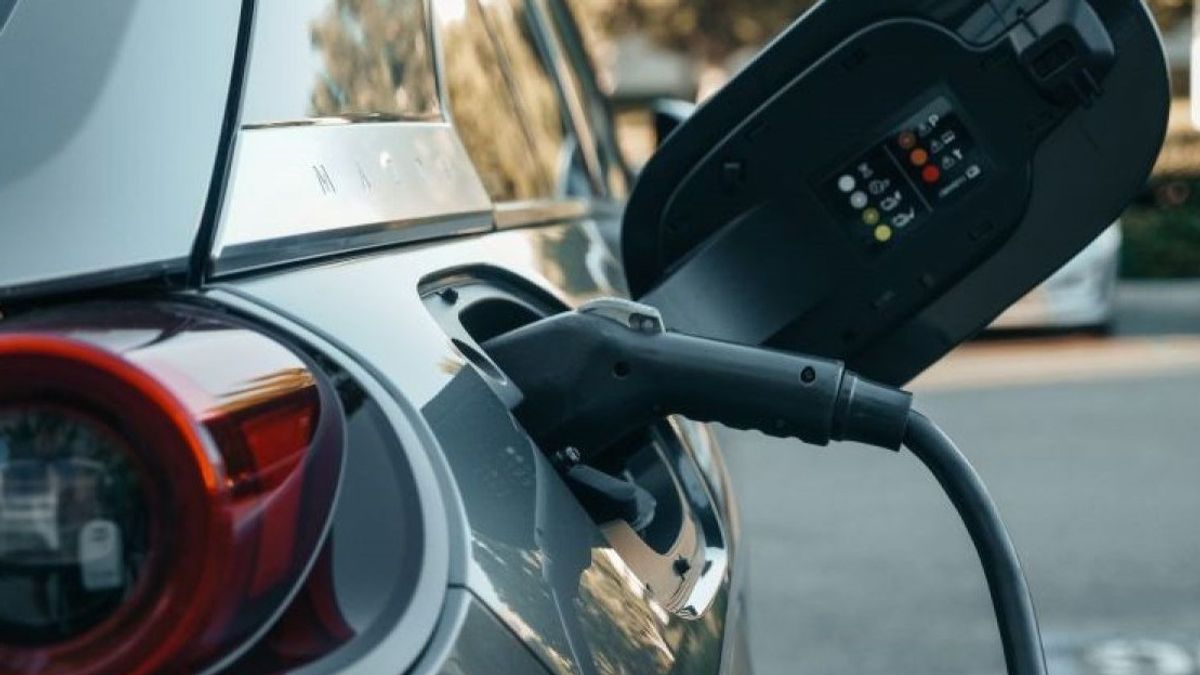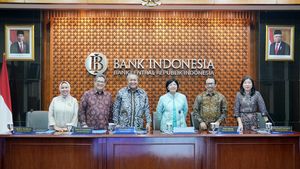JAKARTA - The government has prepared a series of tax incentives to spur the production and adoption of domestic battery-based electric motorized vehicles (KBLBB). This step was welcomed by the entry of several global EV industry players into the Indonesian market earlier this year.
Deputy for Infrastructure and Transportation Coordination of the Coordinating Ministry for Maritime Affairs and Investment (Kemenko Marves), Rachmat Kaimuddin said tax incentives are an important step to encourage Indonesia to be at the forefront of the electric vehicle revolution.
By encouraging world EV car manufacturers to produce electric vehicles in Indonesia, continued Rachmat, not only stimulate economic growth and job creation, but also pave the way for the development of a strong and sustainable automotive ecosystem in the country.
Rachmat revealed that this tax incentive had actually been implemented since last year. It's just that, continued Rachmat, the socialization was less massive.
"This year will be a special year for the development of the domestic EV ecosystem because we will get many EV vehicle options which will certainly make EV vehicles much more affordable for the wider audience," said Rachmat in an official statement, Friday, March 1.
At the end of last year, Indonesia issued Presidential Regulation (Perpres) Number 79 of 2023 which regulates the provision of incentives in the form of import duties of 0 percent, 0 percent PPnBM, all of which apply to KBLBB imports in a complete or Completely Built-Up (CBU) and Completely Knock Down (CKD) with a Domestic Component Level (TKDN) of 40 percent.
Presidential Decree Number 79 of 2023 also regulates the adjustment of the provisions of the two or three-wheeled and four-wheeled KBLBBN TKDN, one of which is the shift in the provisions of TKDN 60 percent from 2024 to 2027.
Rachmat said that EV producers can enjoy the import incentive package and PPnBM until the end of 2025. Furthermore, producers are required to comply with the provisions of domestic EV production or production debt until the end of 2027, in accordance with the provisions of the applicable TKDN.
This incentive package is here as a win-win solution for Indonesia and investors or producers of the world's EVs. On the one hand, the Indonesian people can enjoy more quality EV options in the world at competitive prices," he said.
"On the other hand, producers can build manufacturing facilities in Indonesia while testing their EV products and building EV market share in the country," he continued.
To ensure that the implementation of incentives can run smoothly, the government has also issued a set of Ministerial Regulations (Permen) such as the Minister of Investment Regulation No. 6 of 2023, the Minister of Industry Regulation Number 29 of 2023, and the Minister of Finance Regulation (PMK) Number 9 of 2024 and PMK Number 10 of 2024.
Rachmat said this incentive functions as a catalyst for Indonesia's transition to a greener and more sustainable future.
By providing incentives for domestic production of electric vehicles, he continued, the government not only encourages the use of environmentally friendly vehicles that are crucial for overcoming the issue of domestic air pollution, but can also position Indonesia as a leader in the global struggle against climate change.
SEE ALSO:
For your information, Indonesia is currently the largest automotive market in the Southeast Asia region. The automotive industry is also one of the backbones of the Indonesian economy to accommodate around 1.5 million workers and contribute to GDP 4 percent. Meanwhile, the export value of the Indonesian automotive industry will reach IDR 70 trillion in 2022.
It is known that global electric car sales in 2022 have reached 14 percent of total global car sales, and by the end of 2023 it has reached 18 percent. But currently, Indonesia's EV manufacturing capacity lags behind neighboring countries.
Indonesia's production capability reaches 34,000 cars, 2,480 buses and 1.45 million motorcycles per year. Meanwhile, the plan for the production capacity of electric vehicles in Thailand in 2024 will reach ~359,000 per year. Indonesia targets two million passenger cars for electric vehicles and 13 million electric motorcycles that pave the way in 2030.
The English, Chinese, Japanese, Arabic, and French versions are automatically generated by the AI. So there may still be inaccuracies in translating, please always see Indonesian as our main language. (system supported by DigitalSiber.id)
















